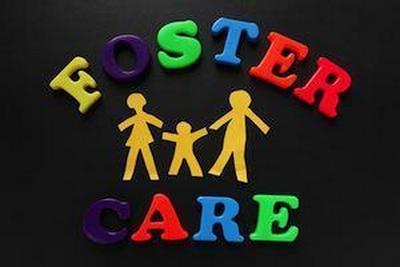Free Initial Consultations
 630-580-6373
630-580-6373With offices in Naperville, Joliet, Wheaton, Plainfield & Chicago
NOTE: As of July 2017, the law governing child support in Illinois has changed. Please see our Child Support page for more information.
 State Senator Michael Hastings (D-Tinley Park) sponsored legislation that would change the way child support is calculated. According to the Chicago Tribune, Senator Hastings said, "Illinois has a lot of archaic laws. The child support laws on the books do not consider the modern family when determining the necessary child support for many families." HB 3982 would change the child support laws from taking into account just one parent’s income, to using both parents’ incomes to determine the amount of child support that should be paid. Most states do take into account the income of both parents.
State Senator Michael Hastings (D-Tinley Park) sponsored legislation that would change the way child support is calculated. According to the Chicago Tribune, Senator Hastings said, "Illinois has a lot of archaic laws. The child support laws on the books do not consider the modern family when determining the necessary child support for many families." HB 3982 would change the child support laws from taking into account just one parent’s income, to using both parents’ incomes to determine the amount of child support that should be paid. Most states do take into account the income of both parents.
Current Child Support Laws
 Couples sign prenuptial agreements before marriage so they are able to determine, in advance, how assets will be divided if there is a divorce. The Illinois Uniform Premarital Agreement Act governs prenuptial agreements. Couples enter into prenuptial agreements assuming that the court will enforce them if there is a divorce. However, there are situations that make a prenuptial agreement, or some of the provisions in a prenup, invalid.
Couples sign prenuptial agreements before marriage so they are able to determine, in advance, how assets will be divided if there is a divorce. The Illinois Uniform Premarital Agreement Act governs prenuptial agreements. Couples enter into prenuptial agreements assuming that the court will enforce them if there is a divorce. However, there are situations that make a prenuptial agreement, or some of the provisions in a prenup, invalid.
When preparing and signing a prenuptial agreement, it is important to have a knowledgeable prenuptial agreement attorney to ensure that you do not accidentally have your agreement invalidated in whole or in part.
Duress
For a prenuptial agreement to be valid, both parties must sign the agreement willingly. There cannot be coercion or duress on either party to sign the agreement. One spouse saying that he or she will not get married without a signed prenuptial agreement is not necessarily enough to be duress in itself. However, the court will look at the amount of time before the wedding that the prenuptial agreement was signed. If an agreement was signed immediately before the wedding, then there may be a case for duress. Duress is generally when one person does not feel like he or she has any other options but to sign the agreement.
 On January 1, 2016, Illinois family law went through a major overhaul, and changes to the Illinois Marriage and Dissolution of Marriage Act went into effect. One major change was the way child custody was divided. Prior to the change, there was child custody and visitation; however, now the law discusses parental responsibility and parenting time.
On January 1, 2016, Illinois family law went through a major overhaul, and changes to the Illinois Marriage and Dissolution of Marriage Act went into effect. One major change was the way child custody was divided. Prior to the change, there was child custody and visitation; however, now the law discusses parental responsibility and parenting time.
What is Parental Responsibility?
In the past, custody was divided into two concepts: physical custody and legal custody. Physical custody referred to with whom the child lived. Legal custody referred to the individual who made the important decisions for the child. Examples of decisions included extracurricular activities, health decisions, and religious observance. Now, the term parental responsibility is used and is similar to legal custody—it defines who gets to make the decisions for the child.
 Lawmakers in Illinois ended the session without passing a budget. Therefore, without a budget, several programs in Illinois are running a shortfall or are at risk of closing. The Child Support Services Program, a program which helps many people, especially low income families, get the child support to which they are entitled, is being adversely affected by the stalemate.
Lawmakers in Illinois ended the session without passing a budget. Therefore, without a budget, several programs in Illinois are running a shortfall or are at risk of closing. The Child Support Services Program, a program which helps many people, especially low income families, get the child support to which they are entitled, is being adversely affected by the stalemate.
Budget Issues
As of the evening of May 31, it appears that Illinois will go a second year in a row without passing a budget. ABC 7 Chicago reports that an agreement for an actual budget is unlikely to happen by the deadline between the Democrats and the Republicans in the government. The deadlock has resulted in Illinois working without a budget for the last 11 months. In the meantime, stopgap measures will likely be voted into place to make sure the government keeps going. However, the lack of an official budget is wreaking havoc on government programs, including the Child Support Services Program.
 In order for a father to retain the legal rights and responsibilities of parenthood, paternity needs to be established. In the absence of an adoption or other extenuating circumstances, if the mother of the child is married to a man at the time that she got pregnant and/or the time that she gives birth to the child, then her husband is the presumptive father. In all other cases, paternity needs to be established.
In order for a father to retain the legal rights and responsibilities of parenthood, paternity needs to be established. In the absence of an adoption or other extenuating circumstances, if the mother of the child is married to a man at the time that she got pregnant and/or the time that she gives birth to the child, then her husband is the presumptive father. In all other cases, paternity needs to be established.
Alleged Father
When a woman gives birth and she is not married now and was not married when the child was conceived, she will name a person as the “alleged father.” The alleged father is not considered the legal father until other conditions are met. If the alleged father agrees that he is the father and he is around and available, then both parties will complete a Voluntary Acknowledgement of Paternity form. This form needs to be signed by both parties in front of a witness. This is generally the easiest way for paternity to be established, but it requires both parties’ consent.
 The Chicago Tribune recently reported that a woman from Lake Geneva, Wisconsin was arrested and charged with several felonies and misdemeanors for taking her three children out of state.
The Chicago Tribune recently reported that a woman from Lake Geneva, Wisconsin was arrested and charged with several felonies and misdemeanors for taking her three children out of state.
The woman, recently divorced, had parental responsibilities of the children, though her ex-husband was granted visitation. She and her three children, ages 14, 12 and 10, were discovered in Georgia when another Lake Geneva resident, who was also vacationing in George, noticed the family and called the police.
Police and other authorities had been looking for the woman and her children after they were declared missing several days prior.
The woman was charged with three counts of felony for interfering with child custody, three misdemeanor counts of contributing to truancy, and another misdemeanor count of disorderly conduct. Georgia is likely to extradite the woman back to Wisconsin where she will face the charges.
 There are several ways to bring children into a family. One way to create a family is through adoption, and many people choose to adopt children through foster care. It is important to understand basic information about adopting a child from foster care if you are interested in pursuing this option.
There are several ways to bring children into a family. One way to create a family is through adoption, and many people choose to adopt children through foster care. It is important to understand basic information about adopting a child from foster care if you are interested in pursuing this option.
Foster Care Basics
Foster care is necessary when a child cannot be cared for by his or her parents, for whatever reason; in this case, the the child lives with someone else. Foster care can also include kinship care where a child is cared for by relatives or family friends.
Some children are in foster care for a temporary time while a parent receives services or other kinds of treatment. Other children are in foster care for much longer. Not every child in foster care will be adopted. Adoption can only occur after a biological parent’s rights have been terminated and the other parent consents or also has had his or her rights terminated. According to Adopt US Kids: “There are 17,920 children in foster care in Illinois; 3,347 of these children are waiting for adoptive families.”
 When people think about divorce they usually think about long and stressful hours fighting over property and parenting responsibilities with their spouse. They also tend to think about the high attorney fees that go with it. However, that does not have to be the case. Some couples are choosing mediation as a way to make decisions about their divorce.
When people think about divorce they usually think about long and stressful hours fighting over property and parenting responsibilities with their spouse. They also tend to think about the high attorney fees that go with it. However, that does not have to be the case. Some couples are choosing mediation as a way to make decisions about their divorce.
What Can Mediation Offer?
Mediation involves a trained mediator, who is not the attorney for either side, to help couples come to decisions about how to divide assets, handle parental responsibilities, and manage other issues that need to be figured out before a divorce can be finalized. Mediation can be flexible and involve other practitioners if need be as well. For example, some mediators will call in a counselor or social worker to help with the mediation process if there are emotional issues that keep coming up that are interfering with the mediation process. However, mediation is not counseling and should not be used as a substitute for seeing a marriage counselor if you think your relationship can be salvaged.
 During the lifetime of a child, circumstances can change greatly that may mean that the amount you pay or receive in child support should be altered to take these changes into account. This is called a “modification” of child support.
During the lifetime of a child, circumstances can change greatly that may mean that the amount you pay or receive in child support should be altered to take these changes into account. This is called a “modification” of child support.
Illinois law provides circumstances that may allow parties to go to court for a change. However, keep in mind that because family law is centered on the best interests of the child, judges are generally able to find outside of what the statute says if it is in the child’s best interest. A qualified family law attorney can help you with the specifics of your case.
Getting into Court
Courts do not like to waste resources and they want to make sure that you have a good reason for trying to get child support modified before you can even go in front of a judge. If you are in the process of a divorce where there are children from the marriage, or this is your first attempt at trying to collect child support from a parent, then you are not seeking a modification of child support, but just establishing child support in the first place. That process is different than a modification. Modifications occur when there is already an order governing child support in place, but one party wants the amount either raised or lowered.
 Generally, we think of divorce as a personal matter that remains private. However, once in awhile, a divorce or information that comes out as part of a divorce can negatively impact someone’s job.
Generally, we think of divorce as a personal matter that remains private. However, once in awhile, a divorce or information that comes out as part of a divorce can negatively impact someone’s job.
Recently, an Illinois chief of police found this out the hard way when information that was being investigated as part of his separation from his wife led to his resignation.
The man had worked for the Columbia Police Department for 24 years before he resigned on May 16, 2016. This was after the Monroe County Sheriff’s Department was called to investigate into a domestic matter involving the man and his family. The investigation was related to the divorce process in which he and his wife were involved. While it is not clear the specifics of the domestic matter, it was enough for the man to resign as the Columbia, Illinois police chief. The man's separation from his wife was also granted.
